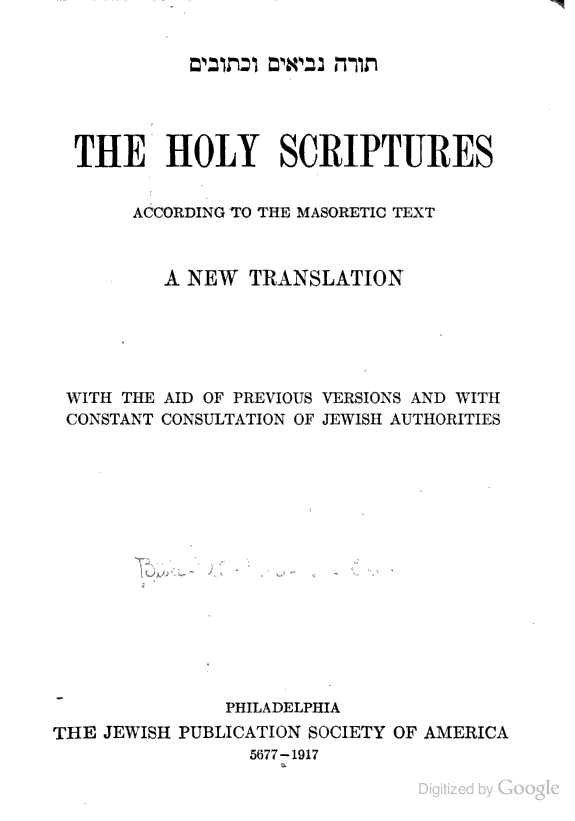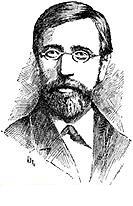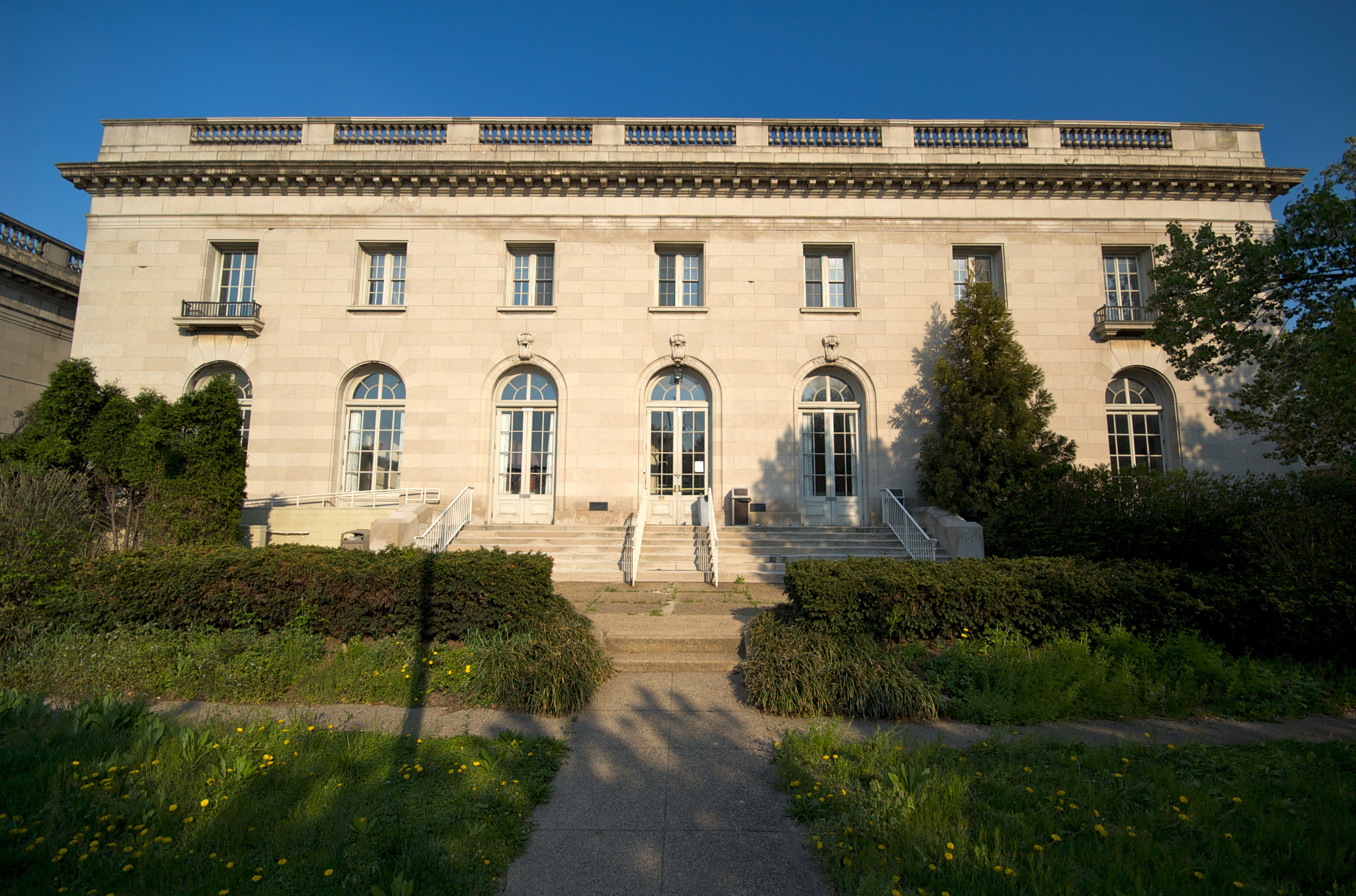|
Jewish Publication Society Of America Version
The Jewish Publication Society of America Version (JPS) of the Tanakh (the Hebrew Bible) was the first Bible translation published by the Jewish Publication Society of America and the first translation of the Tanakh into English by a committee of Jews (though there had been earlier solo efforts, such as that of Isaac Leeser). The full publication title is ''The Holy Scriptures According to the Masoretic Text: A New Translation with the Aid of Previous Versions and with Constant Consultation of Jewish Authorities''. Earlier translations The translation, which appeared in 1917, is heavily indebted to the Revised Version and American Standard Version. It differs from them in many passages where Jewish and Christian interpretations differ, notably in Isaiah 7:14, where it has "young woman" as opposed to the word "virgin" which is used in most Christian Bibles. The translation was initiated in 1892 by the Central Conference of American Rabbis, the organization of Reform rabbis, ... [...More Info...] [...Related Items...] OR: [Wikipedia] [Google] [Baidu] |
New Jewish Publication Society Of America Version
The New Jewish Publication Society of America Tanakh (NJPS), first published in complete form in 1985, is a modern Jewish 'written from scratch' translation of the Masoretic Text of the Hebrew Bible into Jewish English Bible translations, English. It is based on revised editions of earlier publications of subdivisions of the Tanakh such as the Torah and Five Megillot which were originally published from 1969 to 1982. It is unrelated to the Jewish Publication Society of America Version, original JPS Tanakh translation, which was based on the Revised Version and American Standard Version but emended to more strictly follow the Masoretic Text, beyond both translations being published by the Jewish Publication Society of America. This translation emerged from the collaborative efforts of an interdenominational team of Jewish studies, Jewish scholars and rabbis working together over a thirty-year period. These translators based their translation on the Masoretic Hebrew text, and consis ... [...More Info...] [...Related Items...] OR: [Wikipedia] [Google] [Baidu] |
Max Margolis
Max Leopold Margolis (born in Meretz (Merkinė), Vilna Governorate; October 15, 1866 – April 2, 1932 in Philadelphia) was a Lithuanian Jewish and American philologist. Son of Isaac Margolis; educated at the elementary school of his native town, the Leibniz gymnasium, Berlin, and Columbia University, New York City (Ph.D. 1891). In 1891 he was appointed to a fellowship in Semitic languages at Columbia University, and from 1892 to 1897 he was instructor, and later assistant professor, of Hebrew language and Biblical exegesis at the Hebrew Union College of Cincinnati. In 1897 he became assistant professor of Semitic languages in the University of California; in 1898, associate professor; and from 1902 the head of the Semitic department. When Dropsie College was formed in 1909, Margolis was chosen as Professor of Biblical Philology, remaining at Dropsie College until his death in 1932. Margolis was named editor-in-chief of the Jewish Publication Society's translation of the Bible ... [...More Info...] [...Related Items...] OR: [Wikipedia] [Google] [Baidu] |
Moses
In Abrahamic religions, Moses was the Hebrews, Hebrew prophet who led the Israelites out of slavery in the The Exodus, Exodus from ancient Egypt, Egypt. He is considered the most important Prophets in Judaism, prophet in Judaism and Samaritanism, and one of the most important prophets in Christianity, Prophets and messengers in Islam, Islam, the Manifestation of God (Baháʼí Faith)#Known messengers, Baháʼí Faith, and Table of prophets of Abrahamic religions, other Abrahamic religions. According to both the Bible and the Quran, God in Abrahamic religions, God dictated the Mosaic Law to Moses, which he Mosaic authorship, wrote down in the five books of the Torah. According to the Book of Exodus, Moses was born in a period when his people, the Israelites, who were an slavery, enslaved minority, were increasing in population; consequently, the Pharaohs in the Bible#In the Book of Exodus, Egyptian Pharaoh was worried that they might ally themselves with New Kingdom of Egypt, Eg ... [...More Info...] [...Related Items...] OR: [Wikipedia] [Google] [Baidu] |
Torah
The Torah ( , "Instruction", "Teaching" or "Law") is the compilation of the first five books of the Hebrew Bible, namely the books of Genesis, Exodus, Leviticus, Numbers and Deuteronomy. The Torah is also known as the Pentateuch () or the Five Books of Moses. In Rabbinical Jewish tradition it is also known as the Written Torah (, ). If meant for liturgic purposes, it takes the form of a Torah scroll ( '' Sefer Torah''). If in bound book form, it is called '' Chumash'', and is usually printed with the rabbinic commentaries (). In rabbinic literature, the word ''Torah'' denotes both the five books ( "Torah that is written") and the Oral Torah (, "Torah that is spoken"). It has also been used, however, to designate the entire Hebrew Bible. The Oral Torah consists of interpretations and amplifications which according to rabbinic tradition have been handed down from generation to generation and are now embodied in the Talmud and Midrash. Rabbinic tradition's underst ... [...More Info...] [...Related Items...] OR: [Wikipedia] [Google] [Baidu] |
Deuteronomy
Deuteronomy (; ) is the fifth book of the Torah (in Judaism), where it is called () which makes it the fifth book of the Hebrew Bible and Christian Old Testament. Chapters 1–30 of the book consist of three sermons or speeches delivered to the Israelites by Moses on the Plains of Moab, shortly before they enter the Promised Land. The first sermon recounts the Moses#The years in the wilderness, forty years of wilderness wanderings which had led to that moment and ends with an exhortation to observe the law. The second sermon reminds the Israelites of the need to follow Yahweh and the laws (or teachings) he has given them, on which their possession of the land depends. The third sermon offers the comfort that, even should the nation of Israel prove unfaithful and so lose the land, with repentance all can be restored. The final four chapters (31–34) contain the Song of Moses, the Blessing of Moses, and the narratives recounting the passing of the mantle of leadership from Mose ... [...More Info...] [...Related Items...] OR: [Wikipedia] [Google] [Baidu] |
Book Of Exodus
The Book of Exodus (from ; ''Šəmōṯ'', 'Names'; ) is the second book of the Bible. It is the first part of the narrative of the Exodus, the origin myth of the Israelites, in which they leave slavery in Biblical Egypt through the strength of Yahweh, their deity, who according to the story Chosen people, chose them as his people. The Israelites then journey with the prophet Moses to biblical Mount Sinai, Mount Sinai, where Yahweh gives the Ten Commandments and they enter into a Mosaic covenant, covenant with Yahweh, who promises to make them a "holy nation, and a kingdom of priests" on condition of their faithfulness. He gives them laws and instructions to build the Tabernacle, the means by which he will come from heaven and dwell with them and lead them in a holy war to conquer Canaan (the "Promised Land"), which has earlier, according to the Book of Genesis, been promised to the "seed" of Abraham, the patriarch of the Israelites. Though traditionally Mosaic authorship, ascri ... [...More Info...] [...Related Items...] OR: [Wikipedia] [Google] [Baidu] |
Seligman Baer
Seligman (Isaac) Baer (1825–1897) was a Masoretic text, Masoretic scholar, and an editor of the Hebrew Bible and of the Siddur, Jewish liturgy. He was born in Mosbach, the northern district of Biebrich, on 18 September 1825 and died at Biebrich-on-the-Rhine in March 1897. Baer commenced his Masoretic studies as early as 1844. He belonged to the school of Wolf Heidenheim, and had in his possession some of Heidenheim's original manuscripts and personal copies of his published works with handwritten marginal notes. Few scholars in the nineteenth century had so intimate an acquaintance with all the details of the Masorah as had Baer, and it was largely due to him that the study of this branch of Hebrew philology was brought to the notice of Biblical critics. His friendship with Franz Delitzsch, who stood sponsor for much of his work, aided him in making known to the world the results of his studies. Baer's monumental edition of the Jewish prayerbook according to the Ashkenazi Jews ... [...More Info...] [...Related Items...] OR: [Wikipedia] [Google] [Baidu] |
Masoretic Text
The Masoretic Text (MT or 𝕸; ) is the authoritative Hebrew and Aramaic text of the 24 books of the Hebrew Bible (''Tanakh'') in Rabbinic Judaism. The Masoretic Text defines the Jewish canon and its precise letter-text, with its vocalization and accentuation known as the ''masora''. Referring to the Masoretic Text, ''masora'' specifically means the diacritic markings of the text of the Jewish scriptures and the concise marginal notes in manuscripts (and later printings) of the Tanakh which note textual details, usually about the precise spelling of words. It was primarily copied, edited, and distributed by a group of Jews known as the Masoretes between the 7th and 10th centuries of the Common Era (CE). The oldest known complete copy, the Leningrad Codex, dates to 1009 CE and is recognized as the most complete source of biblical books in the Ben Asher tradition. It has served as the base text for critical editions such as Biblia Hebraica Stuttgartensia and Adi. The d ... [...More Info...] [...Related Items...] OR: [Wikipedia] [Google] [Baidu] |
Hebrew Language
Hebrew (; ''ʿÎbrit'') is a Northwest Semitic language within the Afroasiatic language family. A regional dialect of the Canaanite languages, it was natively spoken by the Israelites and remained in regular use as a first language until after 200 CE and as the liturgical language of Judaism (since the Second Temple period) and Samaritanism. The language was revived as a spoken language in the 19th century, and is the only successful large-scale example of linguistic revival. It is the only Canaanite language, as well as one of only two Northwest Semitic languages, with the other being Aramaic, still spoken today. The earliest examples of written Paleo-Hebrew date back to the 10th century BCE. Nearly all of the Hebrew Bible is written in Biblical Hebrew, with much of its present form in the dialect that scholars believe flourished around the 6th century BCE, during the time of the Babylonian captivity. For this reason, Hebrew has been referred to by Jews as '' ... [...More Info...] [...Related Items...] OR: [Wikipedia] [Google] [Baidu] |
Philadelphia
Philadelphia ( ), colloquially referred to as Philly, is the List of municipalities in Pennsylvania, most populous city in the U.S. state of Pennsylvania and the List of United States cities by population, sixth-most populous city in the United States, with a population of 1,603,797 in the 2020 United States census, 2020 census. The city is the urban core of the Philadelphia metropolitan area (sometimes called the Delaware Valley), the nation's Metropolitan statistical area, seventh-largest metropolitan area and ninth-largest combined statistical area with 6.245 million residents and 7.379 million residents, respectively. Philadelphia was founded in 1682 by William Penn, an English Americans, English Quakers, Quaker and advocate of Freedom of religion, religious freedom, and served as the capital of the Colonial history of the United States, colonial era Province of Pennsylvania. It then played a historic and vital role during the American Revolution and American Revolutionary ... [...More Info...] [...Related Items...] OR: [Wikipedia] [Google] [Baidu] |
Center For Advanced Judaic Studies
The Herbert D. Katz Center for Advanced Judaic Studies at the University of Pennsylvania, commonly called the Katz Center, is a postdoctoral research center devoted to the study of Jewish history and civilization. History The Katz Center is the continuation of two pioneering institutions devoted to advanced research: Dropsie College for Hebrew and Cognate Learning and the Annenberg Research Institute. Dropsie College was the first accredited doctoral program in Judaic studies in the world. The Annenberg Research Institute was a center for advanced study in Judaism, Christianity, and Islam founded in 1986 with staff and collections carried over from Dropsie College. The founding director of the Katz Center was David B. Ruderman. The current Ella Darivoff Director is Steven Weitzman. The Katz Center was established in 1993 as a part of the School of Arts and Sciences at the University of Pennsylvania. It was first named the Center for Judaic Studies (CJS); later, the Center ... [...More Info...] [...Related Items...] OR: [Wikipedia] [Google] [Baidu] |
New York City
New York, often called New York City (NYC), is the most populous city in the United States, located at the southern tip of New York State on one of the world's largest natural harbors. The city comprises five boroughs, each coextensive with a respective county. The city is the geographical and demographic center of both the Northeast megalopolis and the New York metropolitan area, the largest metropolitan area in the United States by both population and urban area. New York is a global center of finance and commerce, culture, technology, entertainment and media, academics, and scientific output, the arts and fashion, and, as home to the headquarters of the United Nations, international diplomacy. With an estimated population in 2024 of 8,478,072 distributed over , the city is the most densely populated major city in the United States. New York City has more than double the population of Los Angeles, the nation's second-most populous city. [...More Info...] [...Related Items...] OR: [Wikipedia] [Google] [Baidu] |










